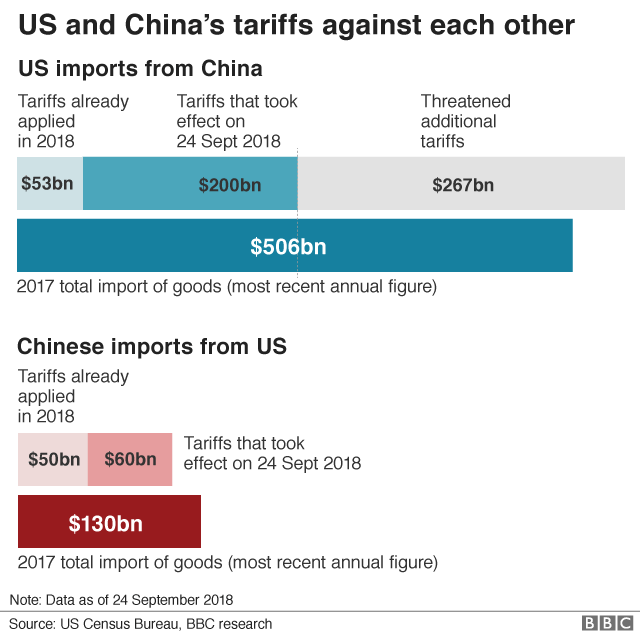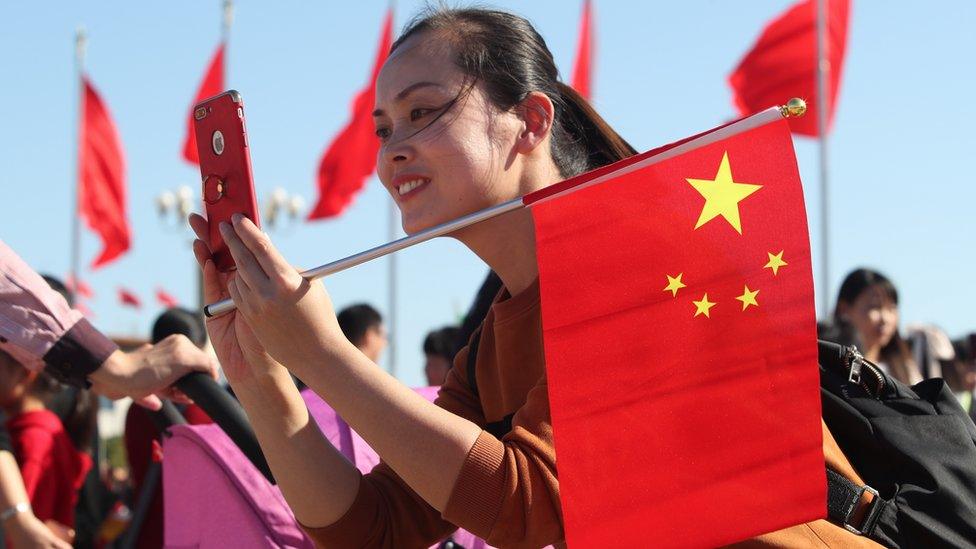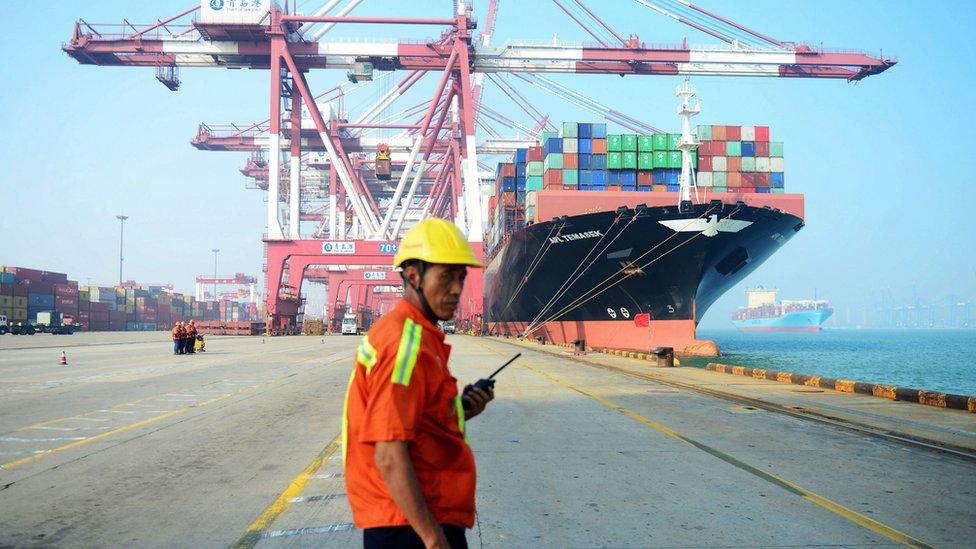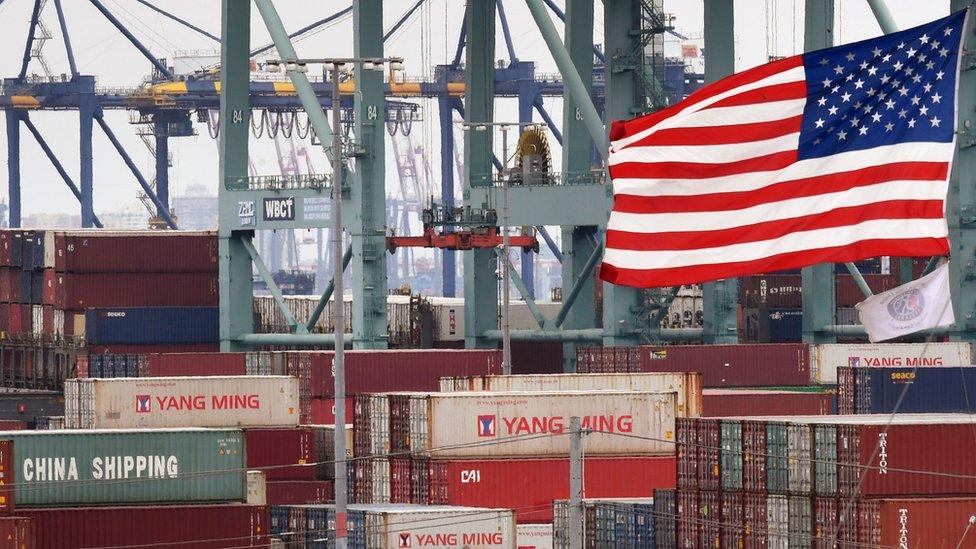US-China trade: Trump touts progress in talks for deal
- Published
What are tariffs and how do they affect us?
"Big progress" is being made in US-China relations, Donald Trump has said, at the end of a year that has seen both countries apply tit-for-tat tariffs.
A trade war erupted earlier this year when Mr Trump complained China was not doing enough to address a trade imbalance between the nations.
Earlier this month, both agreed to suspend new tariffs to allow for talks.
Mr Trump said he and Chinese President Xi Jinping spoke on Saturday and that talks were "moving along very well".
Mr Trump did not offer more detail on what specific progress was being made.
Allow X content?
This article contains content provided by X. We ask for your permission before anything is loaded, as they may be using cookies and other technologies. You may want to read X’s cookie policy, external and privacy policy, external before accepting. To view this content choose ‘accept and continue’.

Chinese state news agencies confirmed the call had taken place, but were more guarded in their language.
China's CCTV channel said Mr Xi praised the US for seeking "co-operative and constructive Sino-US relations".
Unusually, it was Mr Trump who first confirmed his call with Mr Xi, not the other way around.
What's the background to the trade war?
Mr Trump campaigned for president on a pledge to make trade fairer for the US, and repeatedly blamed China's trading practices for making American manufacturers less competitive.
The US imposed tariffs on a number of Chinese products, including consumer and industrial items such as handbags and rice.
China responded in kind, and both sides - the world's two largest economies - ended up imposing tariffs on billions of dollars of goods.
Has Trump kept his promises?
The US has hit $250bn of Chinese goods with tariffs since July, and China retaliated by imposing duties on $110bn of US products.
Tariffs ended up raising costs for American companies. Analysts say this is one of a number of factors that have put pressure on markets in recent weeks.


What's changed in recent weeks?
In early December, Mr Xi and Mr Trump met after the G20 summit in Buenos Aires for the first time since their trade war started.
Mr Trump agreed not to boost tariffs on Chinese goods from 10% to 25% on 1 January, and the US said China would buy a "very substantial" amount of agricultural, industrial and energy products.
The details of that deal are yet to be ironed out, however.
Negotiators from both countries have been in touch over recent weeks and face-to-face talks could take place in January.
- Published26 October 2018

- Published2 December 2018
- Published2 December 2018

- Published16 January 2020
